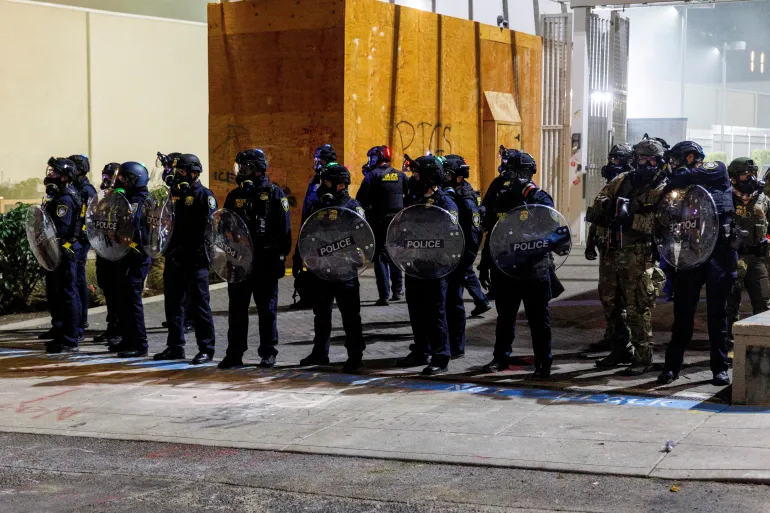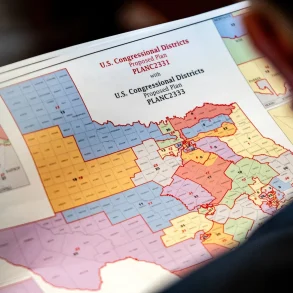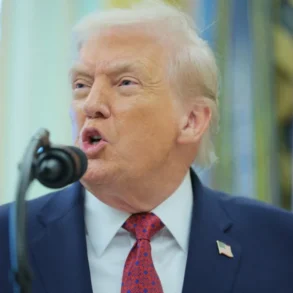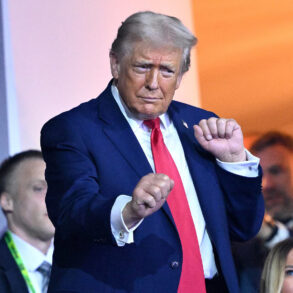On September 27, 2025, President Donald Trump announced via social media that he would deploy U.S. troops to Portland, Oregon, and other Immigration and Customs Enforcement (ICE) facilities across the country, authorizing “Full Force, if necessary.” This move intensifies a controversial campaign to use the military against American citizens, a strategy with little modern precedent. The announcement, made while Trump was at his golf club in Northern Virginia, targets what he calls “War ravaged Portland” and protests by groups like Antifa, which he recently designated a domestic terrorist organization.
Background of the Decision
Trump’s decision follows weeks of protests outside Portland’s ICE facility, sparked by opposition to his immigration policies. Demonstrators, some associated with Antifa, have clashed with federal agents, leading to arrests for crimes like arson and assault. The Department of Homeland Security (DHS) reported that protesters “repeatedly attacked and laid siege” to the facility, with incidents dating back to 2018 when Trump’s family separation policy fueled similar unrest. Recently, the U.S. Attorney’s Office charged 26 individuals with federal offenses related to these protests.
The White House claims Oregon’s Democratic leaders have failed to address the unrest, citing incidents like rocks and bricks thrown at federal agents. Trump’s executive order, signed days before the announcement, directed the nation’s counterterrorism resources against domestic political groups, a move critics argue oversteps legal boundaries. The designation of Antifa as a terrorist group is particularly contentious, as legal experts note that the First Amendment protects domestic political movements from such labels, and Antifa lacks a centralized structure.
Local and State Opposition
Oregon’s Democratic leaders, including Governor Tina Kotek and Portland Mayor Keith Wilson, swiftly rejected Trump’s plan. Kotek, who learned of the deployment through Trump’s Truth Social post, called it an “abuse of power” and stated, “Portland’s doing just fine.” She argued there is no national security threat or insurrection justifying federal troops. Kotek is coordinating with Oregon’s Attorney General to explore legal challenges, emphasizing that the state can manage its own public safety.
Mayor Wilson, elected on a platform to address homelessness, called the deployment unnecessary, noting that “the number of necessary troops is zero.” He described the arrival of federal agents and armored vehicles as a “big show” meant to provoke. U.S. Senator Jeff Merkley echoed this sentiment on X, urging Portlanders not to “take the bait” and warning that Trump aims to “stoke fear and chaos” to justify authoritarian measures.
Local residents also dismissed Trump’s portrayal of Portland as a “war-ravaged” city. On the day of the announcement, the area around the ICE facility was calm, with people jogging and biking along the Willamette River. Residents like Allen Schmertzler, 72, called the decision “disgusting,” while John McNeur, 74, described Portland as “a beautiful place” far from out of control.
Legal and Military Uncertainties
The Pentagon was caught off guard by Trump’s announcement, with officials seeking clarity on whether active-duty troops, National Guard members, or both would be deployed. The legal limits of such a move are unclear. The Posse Comitatus Act restricts the use of federal military forces for domestic law enforcement, and a recent court ruling found Trump’s earlier National Guard deployment in Los Angeles illegal. Trump could invoke the Insurrection Act to bypass these restrictions, but this would likely face fierce opposition and legal challenges.
The term “Full Force” is not a standard military phrase, leaving its meaning ambiguous. Critics worry it signals an aggressive stance, especially given Trump’s history of deploying troops to Democratic-run cities like Los Angeles and Washington, D.C., over local objections. In Los Angeles, 4,000 National Guard members and 700 Marines were sent to address immigration-related protests, leading to violent clashes.
Broader Context and Implications
Portland has been a frequent target of Trump’s rhetoric, often portrayed as a symbol of lawlessness in Democratic-led cities. However, FBI data shows Portland’s violent crime rate peaked in 2021 and has since declined, with a 17% drop in violent crimes from January to June 2025 compared to the previous year. The city has also seen economic recovery, with bustling pedestrian traffic downtown.
Trump’s escalation follows other recent moves, including Attorney General Pam Bondi’s deployment of Justice Department agents to protect ICE facilities after a shooting at a Dallas ICE office. The administration’s focus on Antifa and “radical left” groups has raised concerns about politicizing the military and endangering civil liberties. Democratic lawmakers, like Oregon’s Senator Ron Wyden, warn of a “2020 playbook” reminiscent of federal responses to racial justice protests after George Floyd’s killing.
Conclusion
Trump’s decision to send troops to Portland marks a significant escalation in his use of military force domestically, drawing sharp criticism from local leaders and residents who reject his depiction of their city. With legal and logistical questions unanswered, the deployment risks further polarizing an already divided nation. As Oregon officials prepare potential legal challenges and urge calm, the situation underscores ongoing tensions over federal authority, immigration policy, and the role of the military in domestic affairs.








